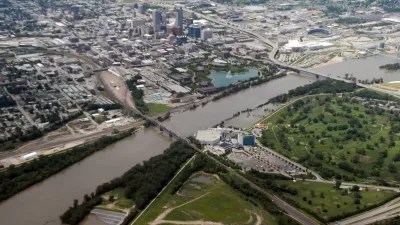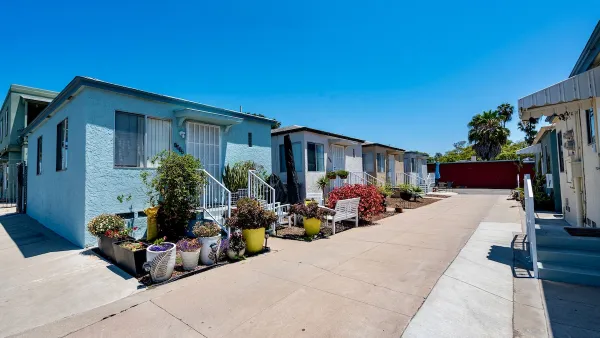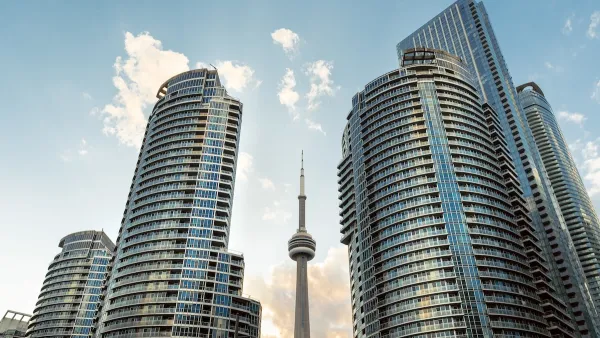A new study shows a troubling reversal of fortunes in many middle-class Black neighborhoods.

A study by Center for Community Progress senior fellow Alan Mallach found alarming rates of decline in the economic growth of Black middle-class neighborhoods in six U.S. cities. As Alan Greenblatt reports in Governing, "Mallach examined more than 300 neighborhoods – all with healthy median incomes in 2000 – and found that a large majority had slipped into poverty by 2018. Fortunes improved in only a handful of neighborhoods; gentrification was barely a factor. In nearly all the neighborhoods, homeownership was down, while vacancy and poverty rates were up."
This troubling trend, writes Greenblatt, has created what Mallach calls "a crisis of non-replacement" that "leads, almost inevitably, to a vicious cycle, sending those neighborhoods into further decline." For better or worse, writes Greenblatt, "the ZIP codes where people grow up determine their trajectory throughout their entire lives," yet Black neighborhoods continue to face discrimination in real estate and public investment. "Homes in predominantly Black neighborhoods are undervalued by $156 billion nationwide, according to the Brookings Institution."
But historically racist policies don't tell the whole story, writes Greenblatt. "Something new has occurred over the past 20 years to drive once-stable neighborhoods into poverty." According to Mallach's study, "[i]n cities where white middle neighborhoods declined, Black neighborhoods declined more. Where white neighborhoods prospered, Black neighborhoods did not share in that prosperity." Greenblatt points to deindustrialization, high unemployment rates, and predatory lending as contributing factors to the decline that occurred in the last two decades.
Two bills now in Congress, the Restoring Communities Left Behind Act and the Neighborhood Homes Investment Act, would create a new grant program and a tax credit aimed at supporting more affordable housing and stabilizing neighborhoods. "There’s no single solution that will work for every struggling neighborhood," writes Greenblatt. "Few will pursue the exact same formula for sprucing up and marketing areas that are on the cusp between growth and decline. But seemingly simple steps can pay major dividends over time, making neighborhoods healthier for residents and more appealing to newcomers."
FULL STORY: Why Black Neighborhoods Continue to Struggle

Maui's Vacation Rental Debate Turns Ugly
Verbal attacks, misinformation campaigns and fistfights plague a high-stakes debate to convert thousands of vacation rentals into long-term housing.

Planetizen Federal Action Tracker
A weekly monitor of how Trump’s orders and actions are impacting planners and planning in America.

San Francisco Suspends Traffic Calming Amidst Record Deaths
Citing “a challenging fiscal landscape,” the city will cease the program on the heels of 42 traffic deaths, including 24 pedestrians.

Defunct Pittsburgh Power Plant to Become Residential Tower
A decommissioned steam heat plant will be redeveloped into almost 100 affordable housing units.

Trump Prompts Restructuring of Transportation Research Board in “Unprecedented Overreach”
The TRB has eliminated more than half of its committees including those focused on climate, equity, and cities.

Amtrak Rolls Out New Orleans to Alabama “Mardi Gras” Train
The new service will operate morning and evening departures between Mobile and New Orleans.
Urban Design for Planners 1: Software Tools
This six-course series explores essential urban design concepts using open source software and equips planners with the tools they need to participate fully in the urban design process.
Planning for Universal Design
Learn the tools for implementing Universal Design in planning regulations.
Heyer Gruel & Associates PA
JM Goldson LLC
Custer County Colorado
City of Camden Redevelopment Agency
City of Astoria
Transportation Research & Education Center (TREC) at Portland State University
Jefferson Parish Government
Camden Redevelopment Agency
City of Claremont





























